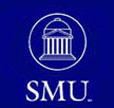|
Interview with Wendy Jones, President of the Executive MSEM Class I
Wendy Jones, president of the executive MSEM Class I, wrote the following responses to questions from a
prospective Class II student. (Reproduced with the permission of Ms. Jones.)
- What is your background?
Professionally, I work in the Systems division of Fidelity Investments. I have been with the company 10+ years, and have held a
variety of positions both in and out of the IT field. Prior to that, I worked in a boutique financial firm, as well as a major oil and gas firm in their engineering division (exploration, reserves
management, etc.). Academically, my undergrad was psychology, minoring in both Economics and Political Science.
- How did you hear about SMU's Executive MSEM program?
As I was looking at various university websites for a Masters program that fit my needs.
- Why did you choose this program?
Given my future goals (executive management via executive IT management), I felt the program's timing and focus would be
appropriate.
- How accessible is the faculty?
Very accessible. No-one in my class has had difficulty when they've needed assistance. We've even had individuals
audit the professors' on-campus classes to help them with their work.
- What are some of the key benefits you have experienced?
The primary benefits have been expanded knowledge, broadened exposure to different technical industries
and business models, and a combined academic/real world experience for the topics covered in the program.
- What have been some of the key challenges?
Work/School/Life balance is probably the hardest thing people have to face. It is difficult, but with time
management skills, commitment to the program, and advanced planning and communication with family and work, it is workable. Other key challenges have been (for me) overcoming my lack of knowledge in some
areas and staying engaged in areas where I already have expertise. For example, any mathematical equations are difficult for me because I am a visual person. I can ace Geometrical problems - I can see
them. Give me a series of algebraic or calculus type equations and I just want to run away! But I have quite a bit of management experience under my belt, and a degree in psychology, so when it comes
to management and business focused classes, I have to fight to stay engaged because it's not new stuff to me. So - how to overcome them? I utilize my study group partners - they help me "see"
the math and I help them put management stuff in context.
- How have you overcome those challenges?
Please see above.
- How much time per week do you spend working on class assignments?
5-6 hours per week, with 8-10 being the norm when projects and finals are coming due (the
last couple weeks each semester)
- How large is your team?
I have had 3, 4, and 5 members on my study group team at various times.
- What is the most efficient means of communication within your team?
We use a combination of phones, emails, and occasional facetime visits. We shoot for
communicating about schoolwork at LEAST once a week for a couple of hours - typically in person.
- If you had to do it all over again, would you choose the regular (independent, not team-based) MSEM program?
No. I could not have survived this long in
the program without my team. I cannot emphasize this enough.
- As president of your class, what are your responsibilities?
I function as a mediator and facilitator for class discussions relevent to the program itself or
class-wide concerns. I bring any significant concerns or requests to the attention of the program's administration. I also coordinate social functions to keep the group feeling like a team, and
generally keep folks focused on moving forward and through the program. I also answer questions like these for incoming students!
- What are the benefits/challenges of being president of the class?
Being in a facilitation and leadership role is always fun for me. I've enjoyed
listening to everyone and working to find solutions. Challenges are multi-faceted - people have different personalities and viewpoints. This makes for some interesting discussions. Remaining objective even
though I have my own opinion on things as a student is a challenge, but it constantly helps me be a better person and program participant.
- What are some of your recommendations to improve the program?
We've made recommendations to Dr. Barr [EMIS department chair] and David von Zurmuehlen
[Executive Masters Contact].... (All have) been discussed and are being worked or have already been addressed.
- Has it been worth the time?
The program has been worth my time. The president role is something I have enjoyed and will continue to enjoy; whether someone else
would find it to be worth their time, I do not know. If you are interested in a leadership role in life, this is a unique forum in which to learn and practice. However, you hold the future of many other people
in your figurative "hands" as you represent them, and it's important that the image they have of you (your peers and the administration) is one they can trust and depend upon. My biggest hope (and
a frequent prayer) is that I will live up to their expectations and represent them well. I am not be giving them their grades, but I am indirectly influencing how they handle the program and what they get
out of it. Being able to resolve conflicts and remain objective are critical and can be very hard to do at times!
I hope this helps - I am sorry it took so long to complete. Please let me know if anything is unclear or if there is more information I can provide. I hope we cross paths in person in the future at SMU!
Wendy
January 14, 2003
|



